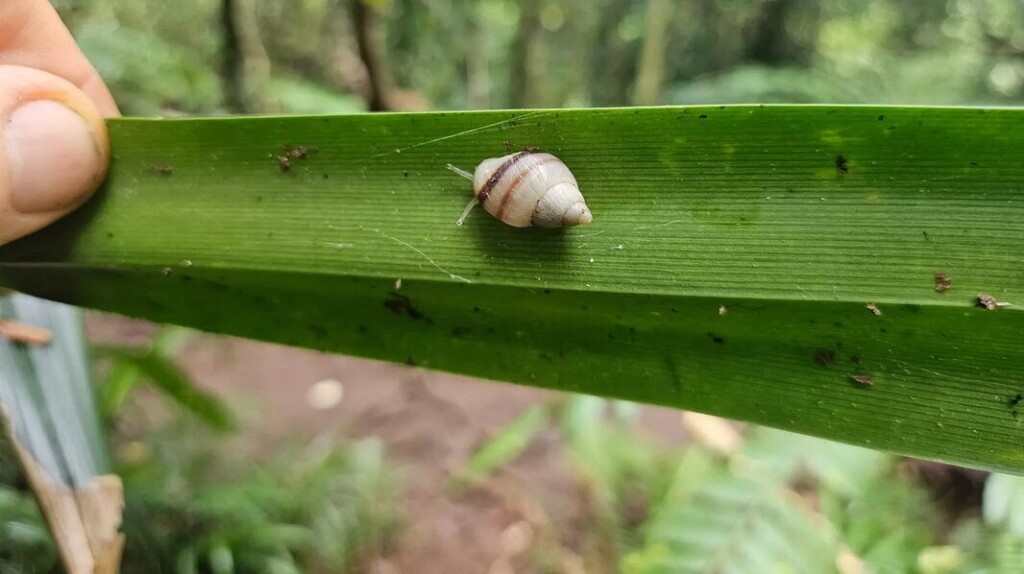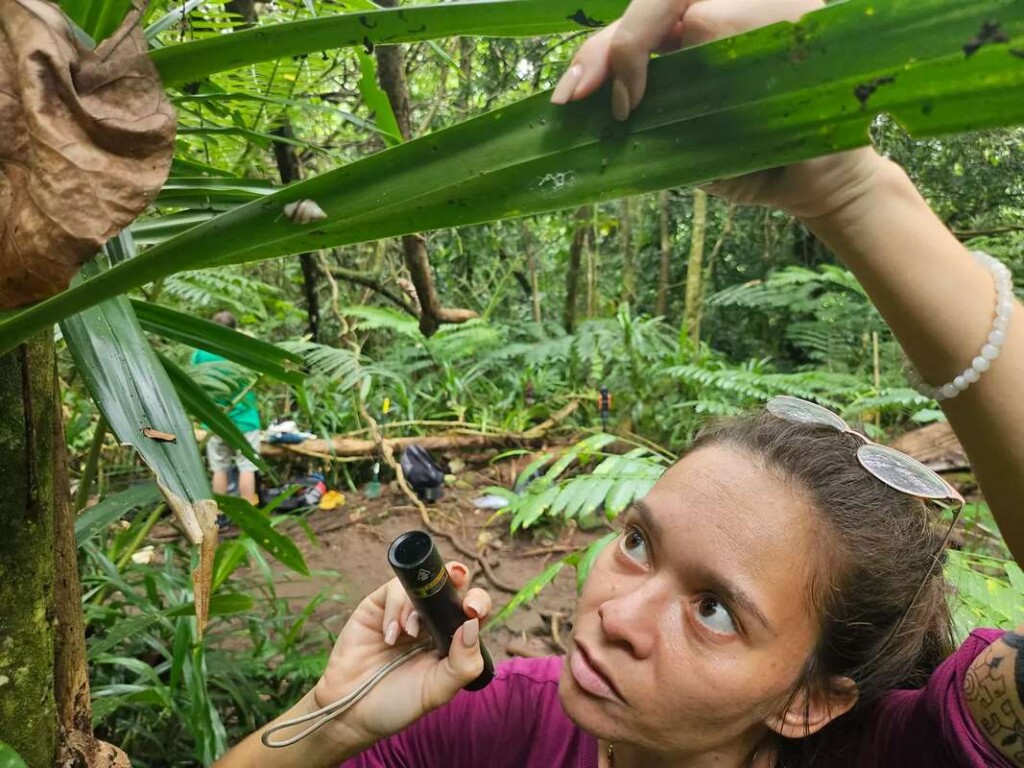 © Paul Pearce Kelly
© Paul Pearce KellyA global conservation effort to reintroduce a tiny snail to the wild is celebrating a momentous milestone, as for the first time in 40 years, conservationists have found adult members of the species born in the wild.
This means the precious mollusks called Partula tohiveana have successfully established themselves in French Polynesia.
The London Zoo, and others coordinating around the world, have been releasing captive P. tohiveana into the wild for years on Moorea island. This year, Senior Curator of Invertebrates & Fish Paul Pearce-Kelly, found unmarked Partula tohiveana: proof that previously reintroduced snails have successfully bred in the area.
The discovery means Partula tohiveana can now be considered fully established on the island and perhaps others—an incredibly rewarding result for 40 years of dedication and collaboration.
Conservationists will now begin the process of downlisting the snails from ‘Extinct in the Wild’ to ‘Critically Endangered’ on the IUCN’s Red List.
Ten species and sub-species of the tropical snails, reared at Zoos across Britain, the United States, and from Schwerin, Germany, traveled more than 9,000 miles to Tahiti at the beginning of September.
Before making the two-day journey to the islands of Tahiti, Moorea, and Huahine, the incredibly rare snails, which each measure a tiny 1-2 centimeters in length, were individually counted and marked with a dot of yellow UV reflective paint. The ‘snail varnish’ glows under UV light, helping conservationists in the field to spot and monitor the nocturnal snails at night, when they’re most active.
 © Paul Pearce Kelly
© Paul Pearce Kelly“Though little, these snails have great cultural, scientific, and conservation value,” said Pearce-Kelly. “Partula snails have always been part of Polynesia’s rich cultural heritage and play an important role in the ecological health of their forest habitats. Most recently, they’re providing a valuable conservation model for helping hundreds of endangered island species.”
“This collaborative conservation effort is playing a crucial role in saving these species from extinction. It’s a powerful example of how conservation zoos can combat biodiversity loss.”
Partula snails, also known as Polynesian tree snails, eat decaying plant tissue and fungi, and so play an important role in maintaining forest health. Returning these rare snails back to the wild helps restore the ecological balance in these islands that has been disrupted by invasive species.
ALSO CHECK OUT: Remarkable Sea Slug Found Among Monterrey Bay’s Lightless Depths is Nicknamed ‘Mystery Mollusk’
Conservation zoos are working with the French Polynesian Government’s Direction de l’environnement, to save Partula snails from extinction. In the 1980s and early 1990s, these snails faced a critical threat after the invasive rosy wolf snail (Euglandina rosea) was introduced to control the African giant land snail (Lissachatina fulica). Unfortunately, the predatory species targeted the native snails instead, leading to the extinction or near-extinction of many Partula species across the region.
In the early 1990s, the last remaining individuals of several Partula species were rescued by us together with Edinburgh Zoo, launching an international conservation breeding program. This collaboration between 15 zoos cares for 15 species and subspecies, most of which are classified by the IUCN as Extinct in the Wild. These rescued snails, along with those already being studied at universities in the UK and North America, became the foundation for reintroducing the species back onto their native island homes.
SNAIL CONSERVATION: Photographer Unites With Cuban Scientists to Save the World’s Most Beautiful Snail
“After decades of caring for these species in conservation zoos and working with the Direction de l’environnement to prepare the islands, we started reintroducing Partula snails back into their lowland tropical forests almost 10 years ago,” said Pearce-Kelly. “Since then, we’ve reintroduced over 30,000 snails, including 10 Extinct in the Wild species and subspecies, with this year’s release being the largest so far.”
Coordination of the Partula snail reintroduction project is made possible due to funding from supporters including the Players of the People’s Postcode Lottery, who have enabled London Zoo to continue bringing species back from the brink of extinction.
WATCH this snail expert passionately explain the meat of this story…
ESCARGO To Social Media And Share This Story…
Source link

